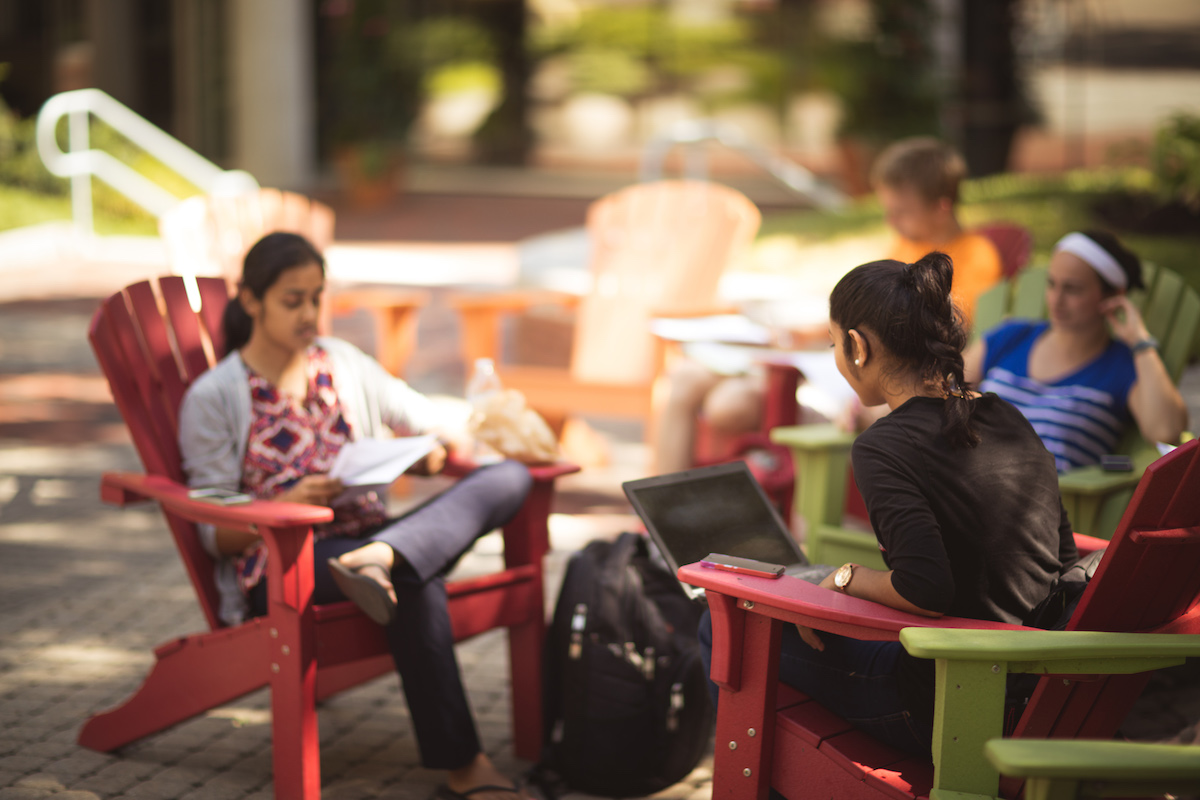Ruchi Gala, graduate of Northeastern’s Master of Science in Regulatory Affairs for Drugs, Biologics, and Medical Devices program, shares her journey as a Husky—from being a first-year student to gaining experience in her desired industry.
Why Northeastern?
 After earning her bachelor’s degree, Ruchi applied to only two graduate schools, one of which was Northeastern University. Having heard positive sentiments about Northeastern and the regulatory affairs graduate program, she was convinced that Northeastern was the place at which she wanted to continue her education.
After earning her bachelor’s degree, Ruchi applied to only two graduate schools, one of which was Northeastern University. Having heard positive sentiments about Northeastern and the regulatory affairs graduate program, she was convinced that Northeastern was the place at which she wanted to continue her education.
One of the main factors that led Ruchi to Northeastern was the co-op program offered by the university.
“In the two years of my master’s, I did quite a few internships and projects with the college, including XN and experiential projects,” she says. “They were based on real events; they assigned me projects with companies in the United States”.
According to Ruchi, the program prepared her to succeed in the professional world and taught her a great deal about the market and industry. She says it’s these aspects that differentiate Northeastern from other colleges in India or elsewhere. She notes, however, that universities in India are much different than those in the U.S., making it difficult to effectively compare them, as they each have their own pros and cons.
One “pro” of Northeastern, she says, is the variety of experiential learning opportunities offered to students. The diversity of courses and real-world projects are simply not offered in India, or are available only once you finish a program, she says. But at Northeastern, students are able to graduate having already gained the experience they need to enter into and succeed in the American workplace.
From her experience, Ruchi gives a few tips to the students aspiring to study abroad. She suggests the applicants not to apply to many universities and instead focus on a few particular universities, getting to know what they offer and more about the program.
“If a university is offering you internships or co-op, I would highly encourage them to go for it because getting practical knowledge is really important in the real-world and United States.”
The Co-op Experience at Northeastern
“I [had the opportunity] to go find an international internship, which I did for the final semester—from January to March of 2019,” says Ruchi about her co-op experience. “It was a bit difficult to manage both an internship alongside coursework at the beginning.”
Luckily, she says, Northeastern’s academic and career advisors were available to help her with the transition and also with finding work after graduation.
“When I approached my program manager after my final quarter, he helped me find a few options for pursuing a further career. He asked me if I would be willing to join him for some research, to review papers, to write future reviews and research papers. He suggested that this would keep me occupied and up-to-date with recent regulations coming in the market. And, he did pass out a few of my resumé to a few companies.”
For her specialization, Ruchi chose to pursue the Drugs, Biologics, and Medical Devices program. For her internship, she worked in a pharmaceutical company called Cipla which specializes in drugs.
“After completing these internships and projects, I was better able to decide where I wanted to pursue my career and in which stream of work. I became more focused on and interested in medical devices after gaining experience at a real medical device company. So, these hands-on opportunities really helped me to decide which [specialization] I would be interested in, and which would be a good fit for me.”
Ruchi is now working in a medical device company as a regulatory affairs associate.
“If you think from the perspective of the company, [before Northeastern,] I did not have any experience. Getting into a pharmaceutical company at an entry-level was quite difficult. And that’s the reason I was facing issues going into full time in a pharmaceutical company—because I had not gained enough experience as per their need.”
Challenges and the Northeastern Environment
For Ruchi, moving to the USA as a student was quite challenging, but she says entering the regulatory affairs industry as a Northeastern graduate wasn’t as hard. Before applying to and joining Northeastern, Ruchi had no real idea of what the program was about, so that was also quite new for her. Additionally, she says that what she had learned in India was quite different from her learnings in the U.S. Fortunately, the accommodating professors helped her navigate the challenges she faced, helping her to succeed.
Ruchi says that the Northeastern campus was rife with Indian students, which made it quite easy for her to settle in and feel comfortable. She also complimented the social life of the university. In particular, she enjoyed that Indian festivals were also celebrated at the university, given the large number of Indians there, which she says was nice.
Quick-Fire Questions with Ruchi
Q. What’s a phrase you’d use to describe Northeastern University?
A. Diverse Indian culture.
Q. What did leaving home for a completely different place feel like?
A. Independent.
Q. Name your favorite thing about being a Husky.
A. Great social life.
Q. What is your favorite spot on campus?
A. The Marino Center gym.
To learn more about the Northeastern experience, please visit the Office of Global Services site or explore more about applying as an international student.






Related Articles
4 Ways to Stay Competitive in Regulatory Affairs
Emerging Trends in Regulatory Affairs in 2022
How to Stay Updated on Regulatory Changes